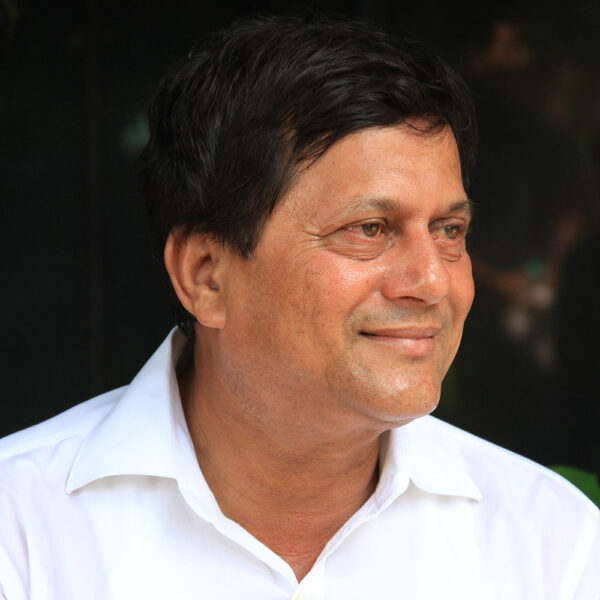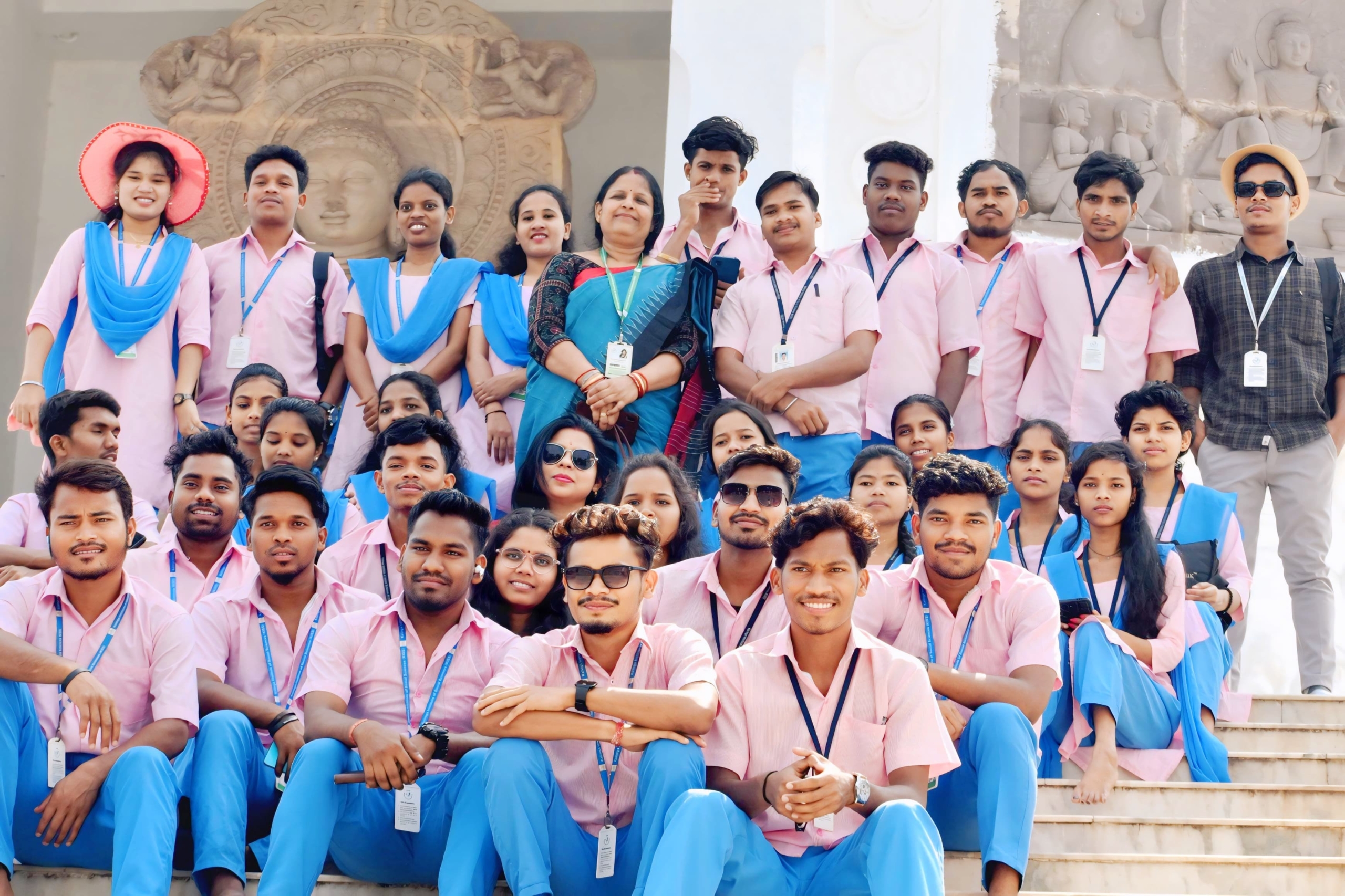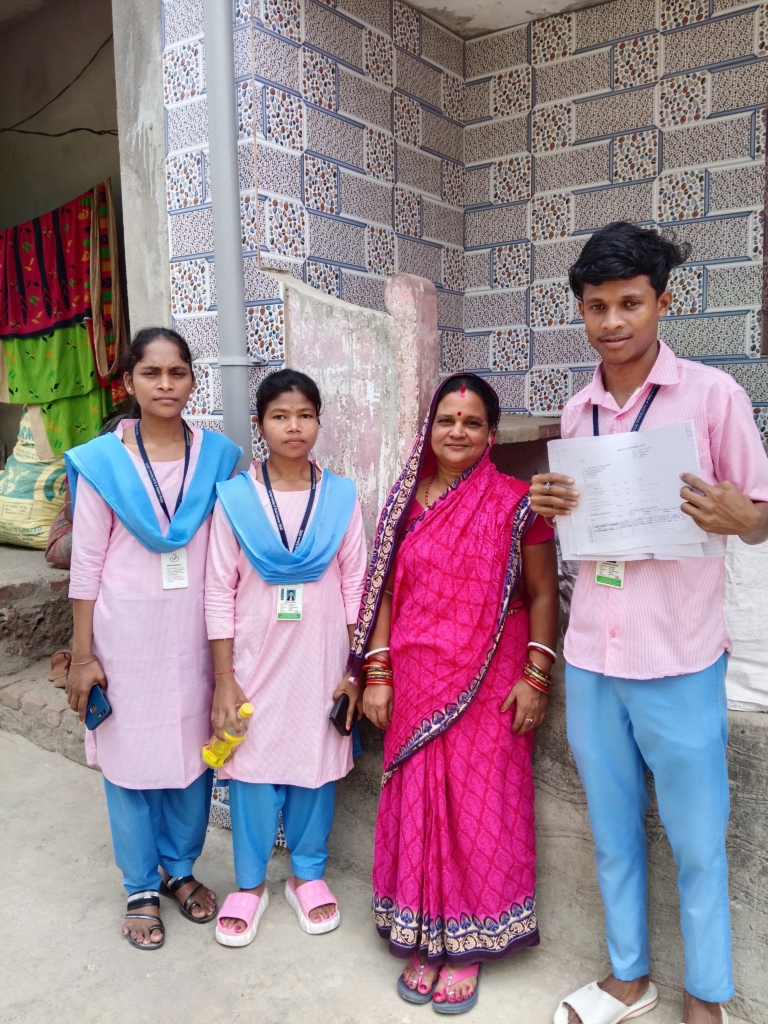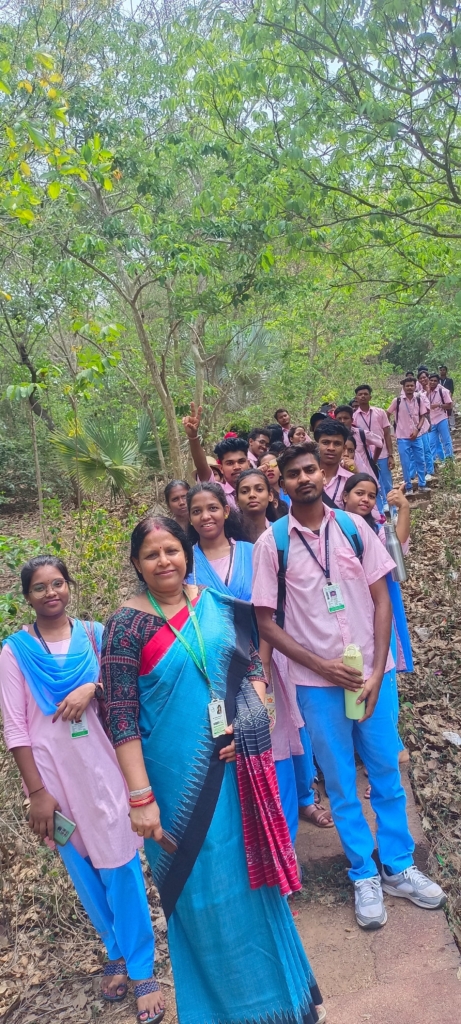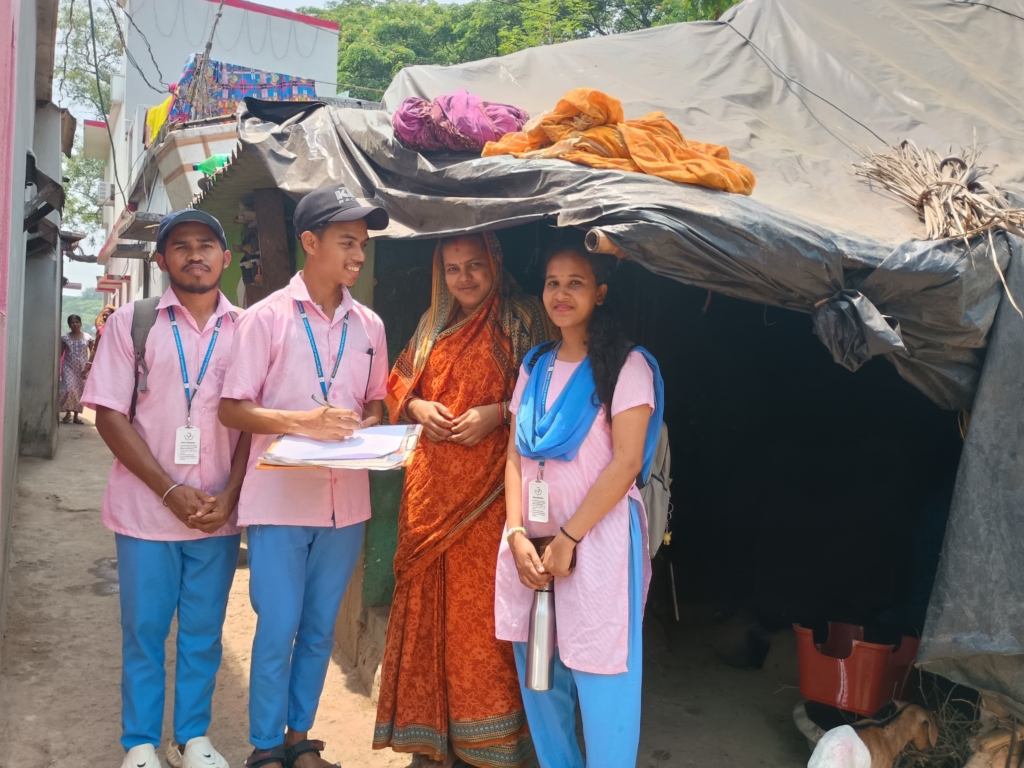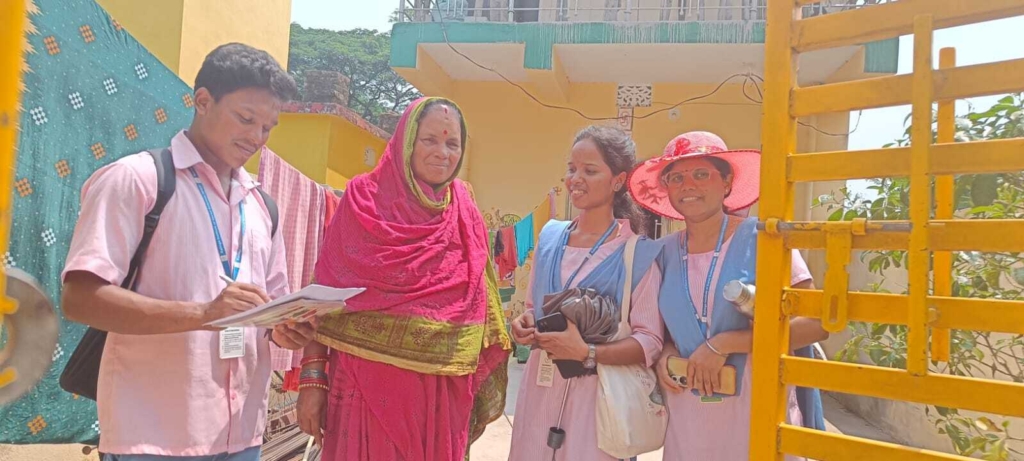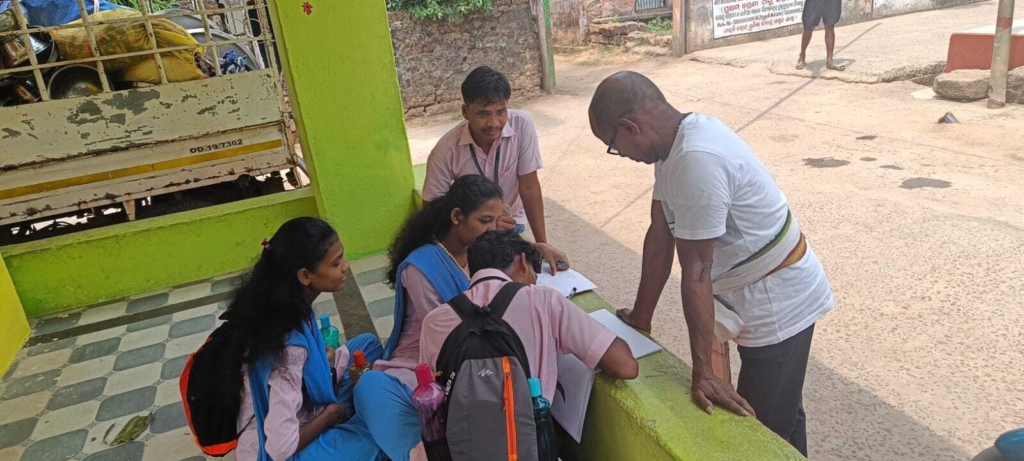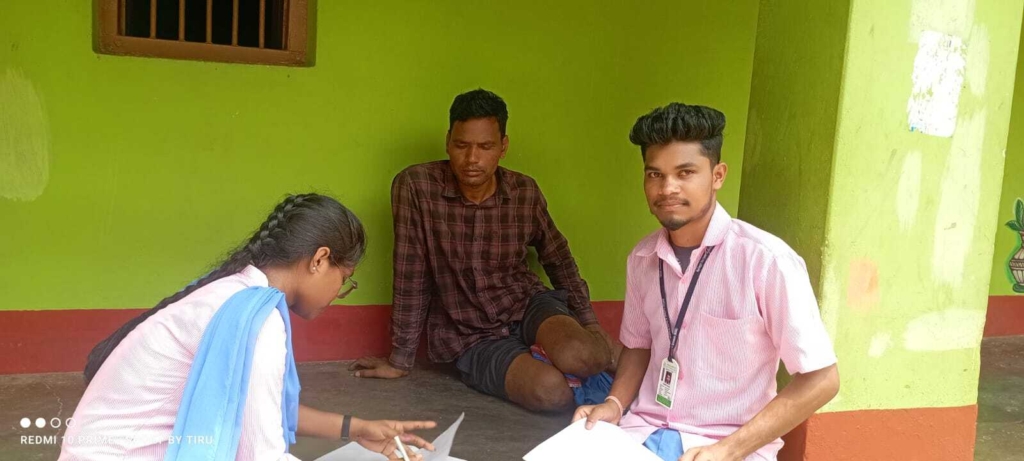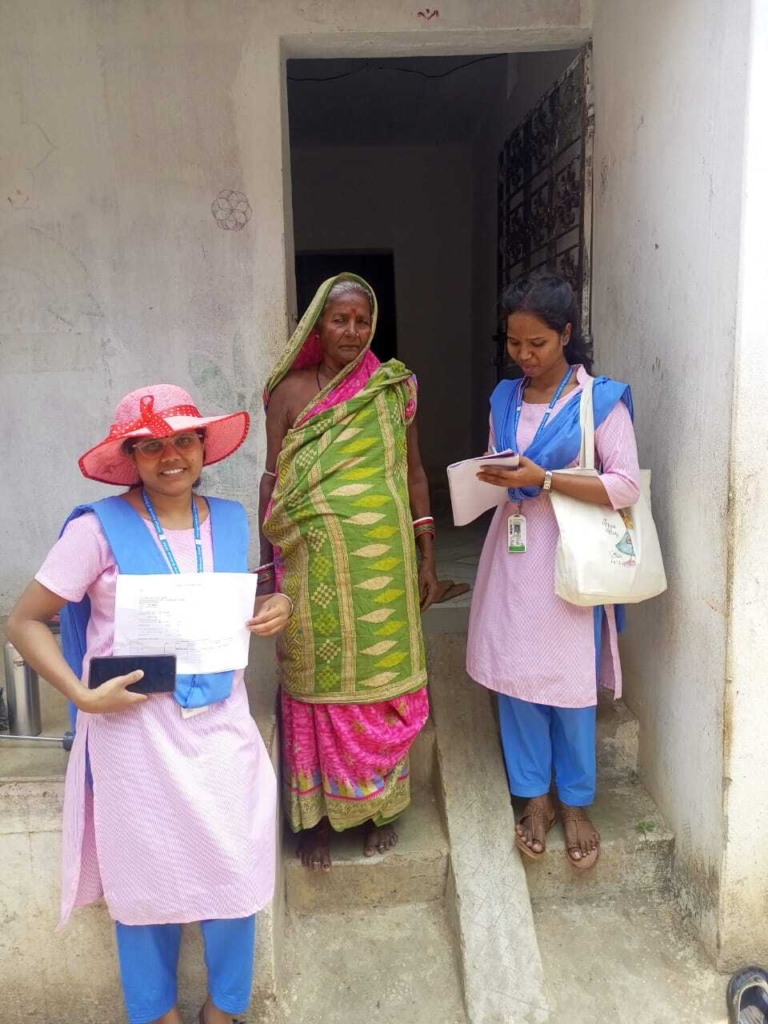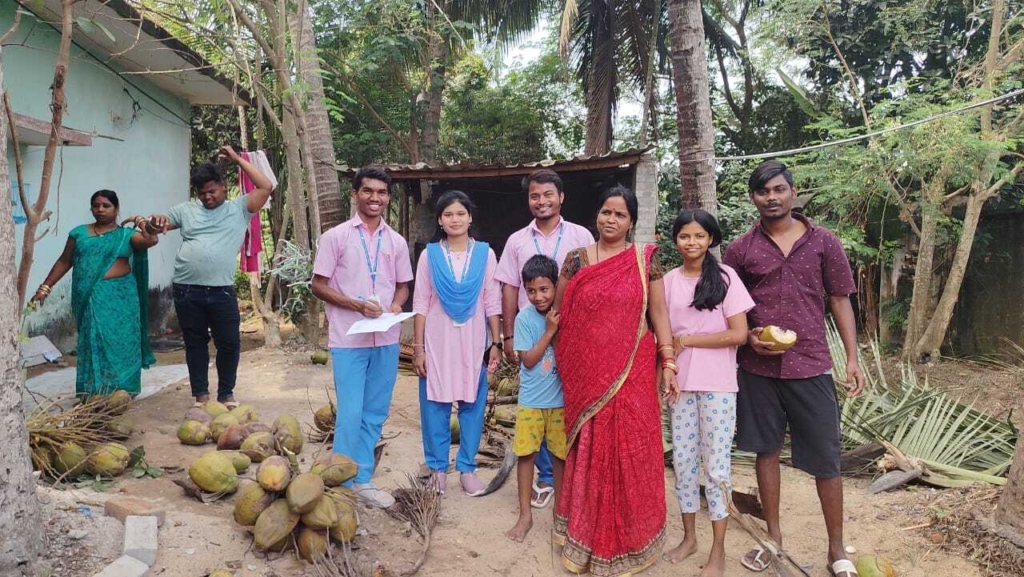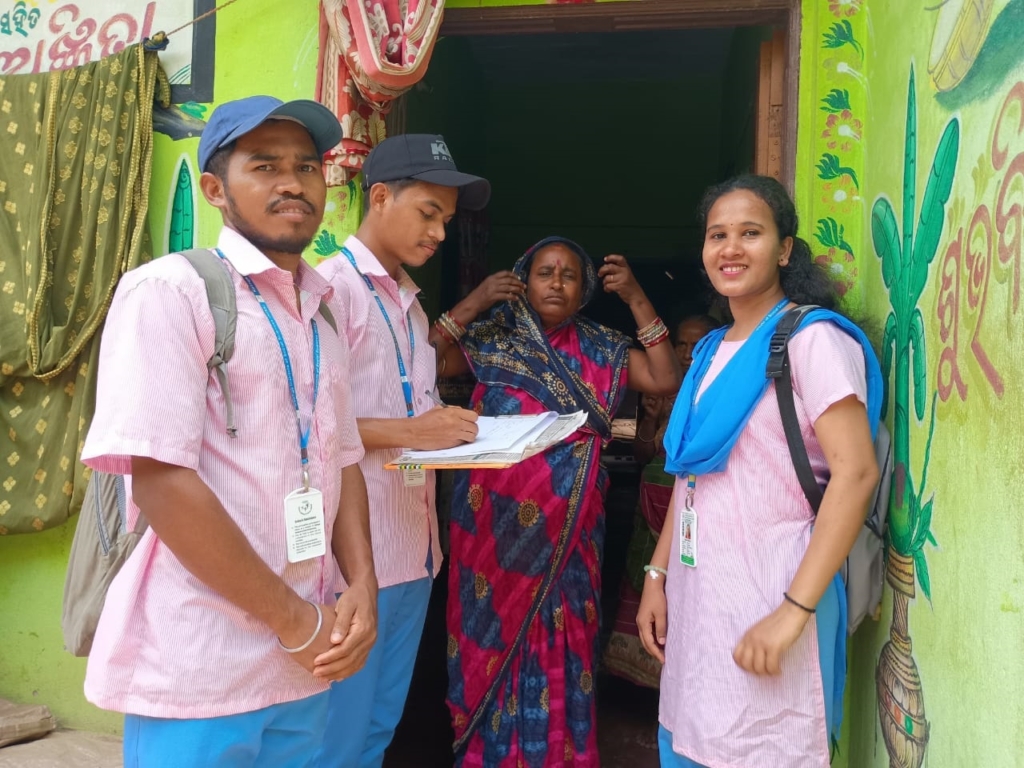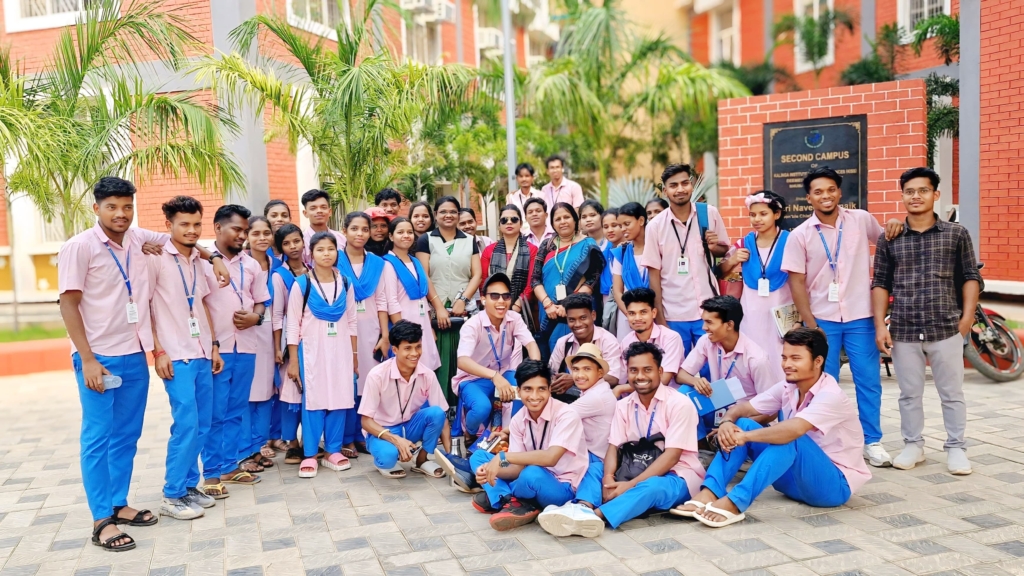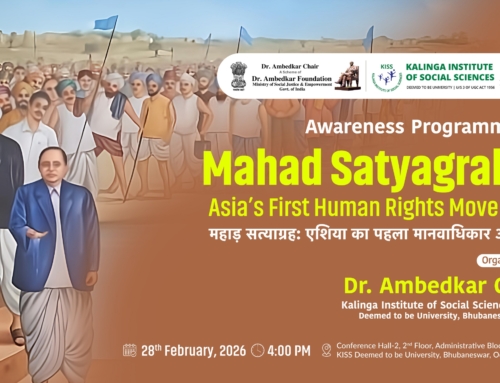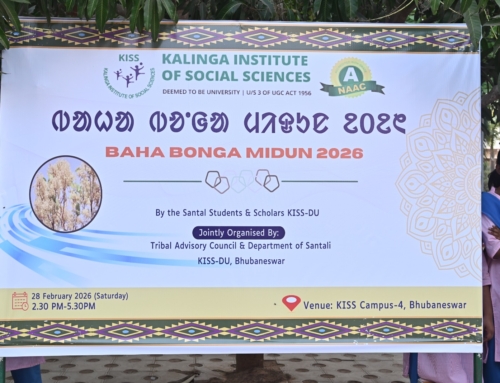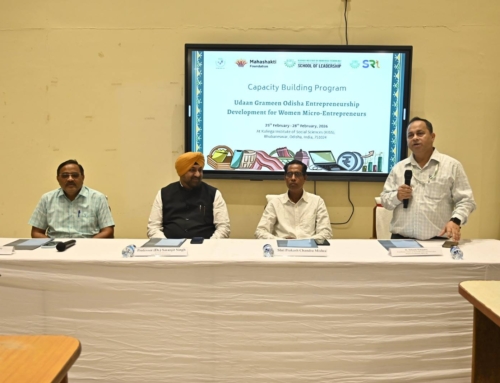The Department of Geography, School of Tribal Resource Management (STRM), KISS Deemed to be University successfully conducted a socio-economic field survey at Khatuapada village, Dhauli, on 4th April 2025. A total of 35 final-year undergraduate and postgraduate students participated in this hands-on exercise aimed at integrating academic learning with real-world experience. The survey focused on several key areas including land and water resource utilisation, housing patterns, slum settlements, soil and vegetation analysis, geomorphological features, mineral resources, and community interaction.
Dhauli, a region known for its historical significance and rich cultural heritage, provided a valuable backdrop for this academic endeavour. Students actively engaged with the local community, gaining firsthand insights into their lifestyles, traditions, and challenges. This fieldwork not only enhanced their research and analytical capabilities but also helped bridge the gap between theoretical knowledge and practical application.
The village of Khatuapada, located in the Uttara P.S. tehsil of Khordha district, Odisha, is a part of the Dhauli Gram Panchayat. Khatuapada presented a welcoming and insightful setting, enabling students to engage meaningfully with the local community and gather valuable primary data.The success of this field visit was made possible through the support and active involvement of local leaders and community members. Special thanks are extended to Mr. Arjun Behera, Mr. Rabindra Das, Mr. Laxmidhar Mohapatra, Mr. Chandan Mallik, and Ms. Purnima Sahoo, the Sarapanch of Dhauli, for their invaluable assistance during the data collection process. The Department also acknowledges the contributions of research scholars Mr. Santosh Kandamaka and Mr. Durjan Sabar for their vital support and coordination throughout the survey.
The survey was conducted under the supervision of Dr. Monalisha Mishra, Assistant Professor and Head of the Department of Geography, and Mrs. Saurava Goswamy, Lecturer, Geography Programme. This field experience will help students work on individual projects based on the different topics they explored during the visit. It will give them a better understanding of rural life, local challenges, and how sustainable development can be applied in real communities.

